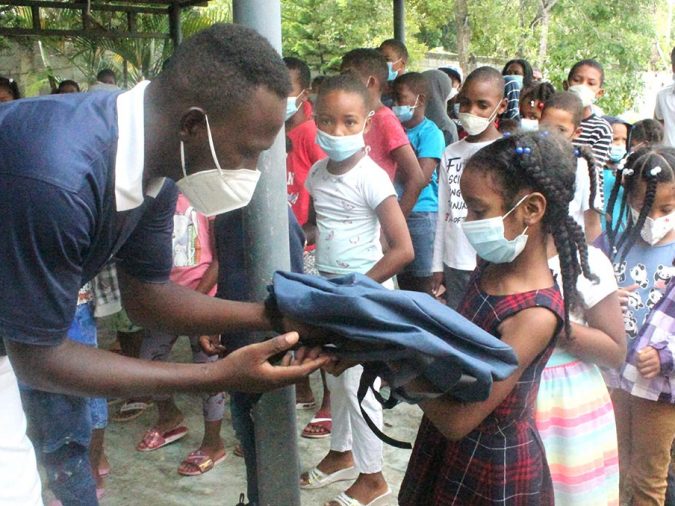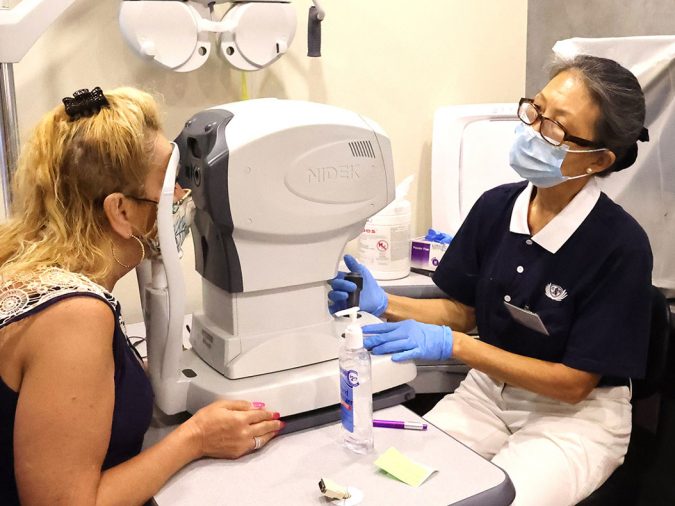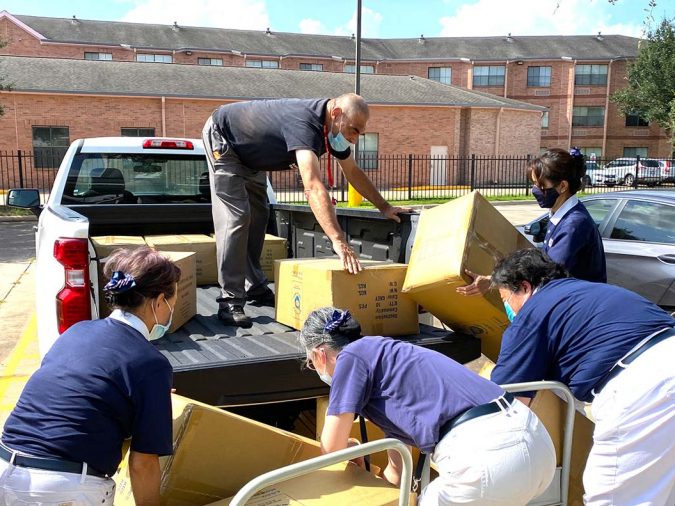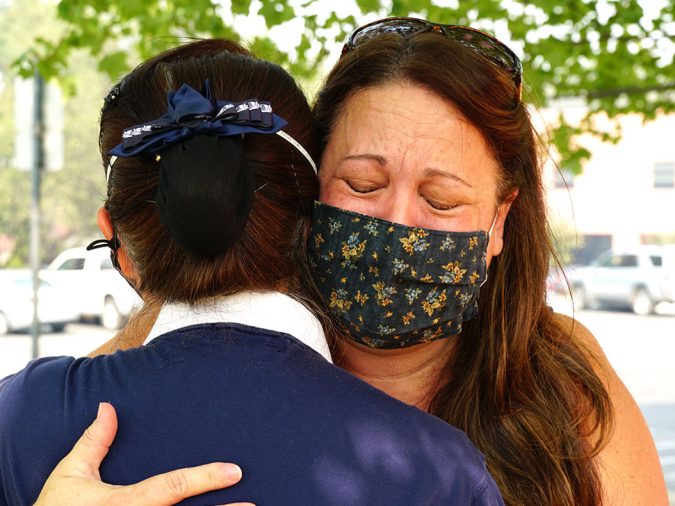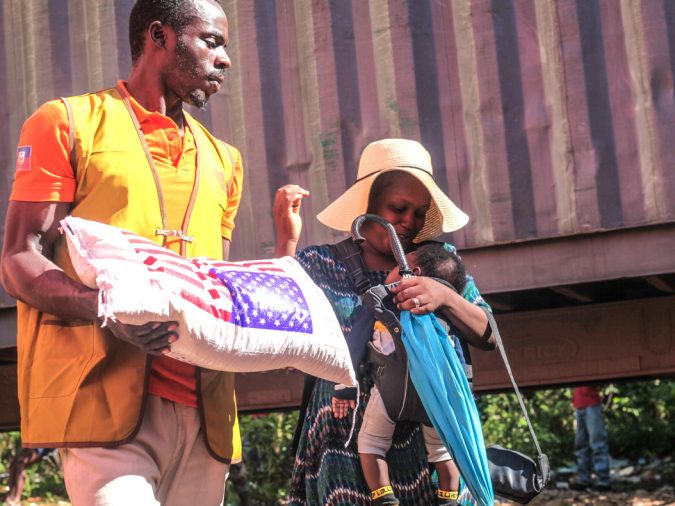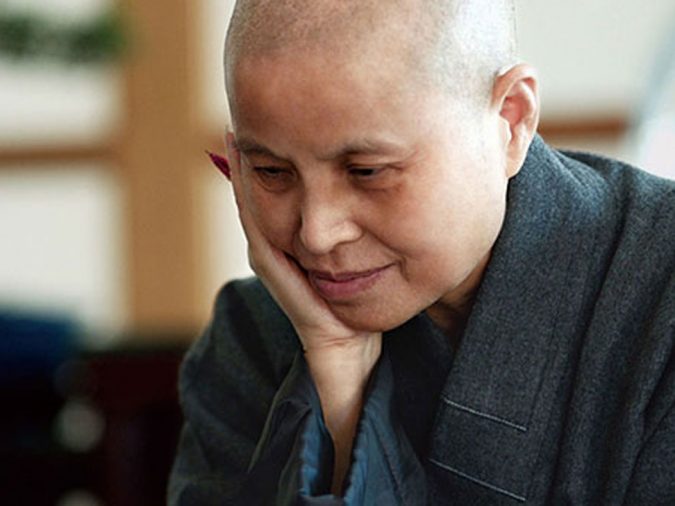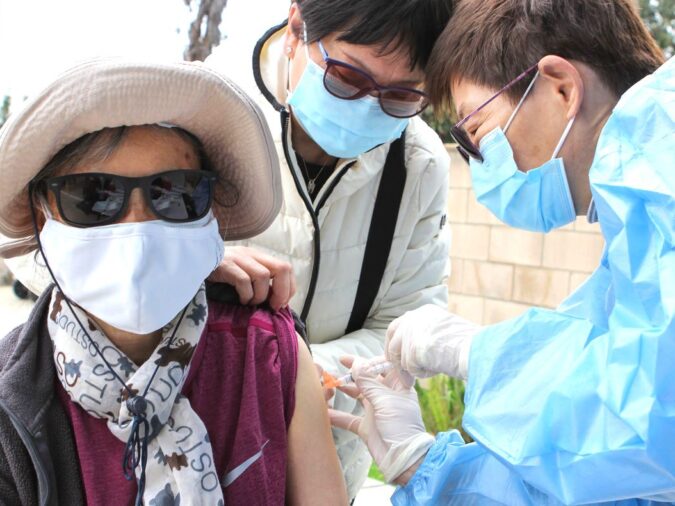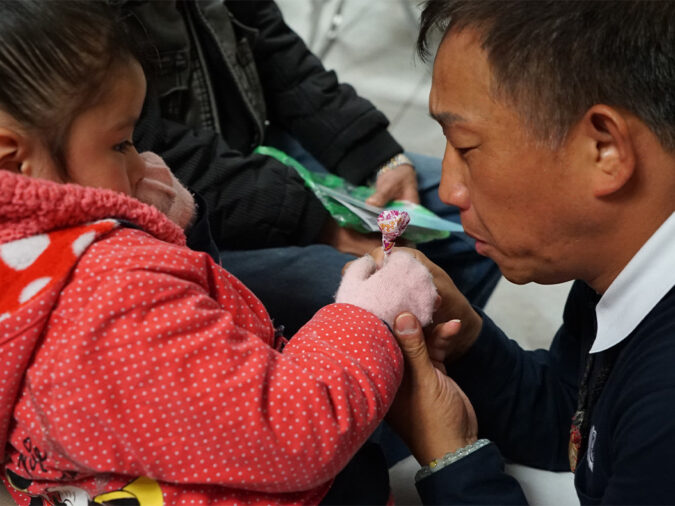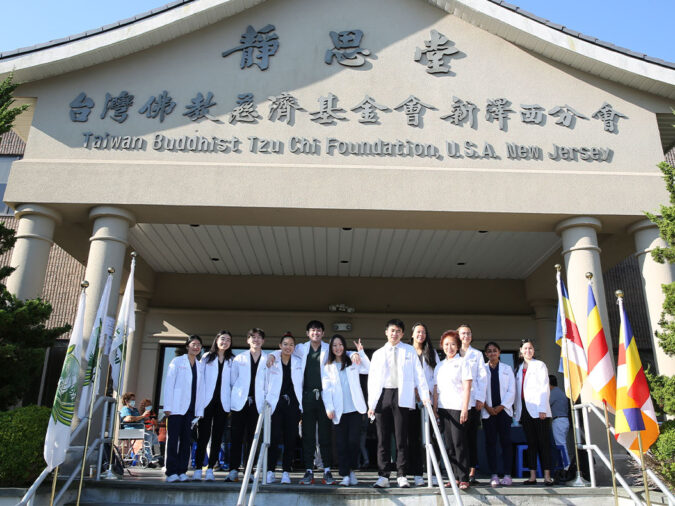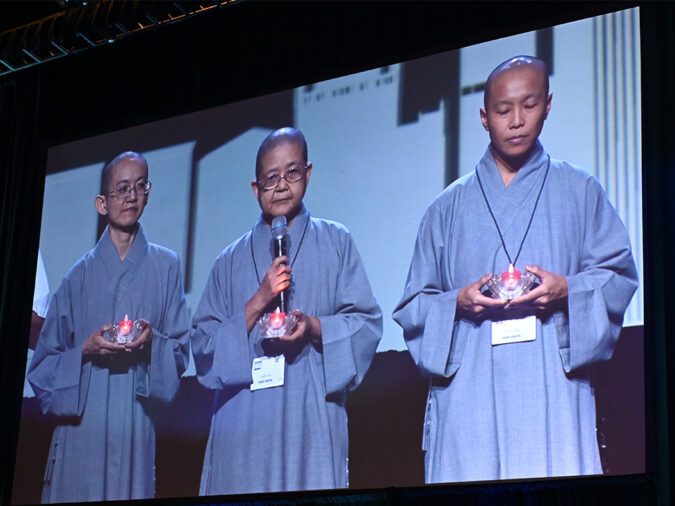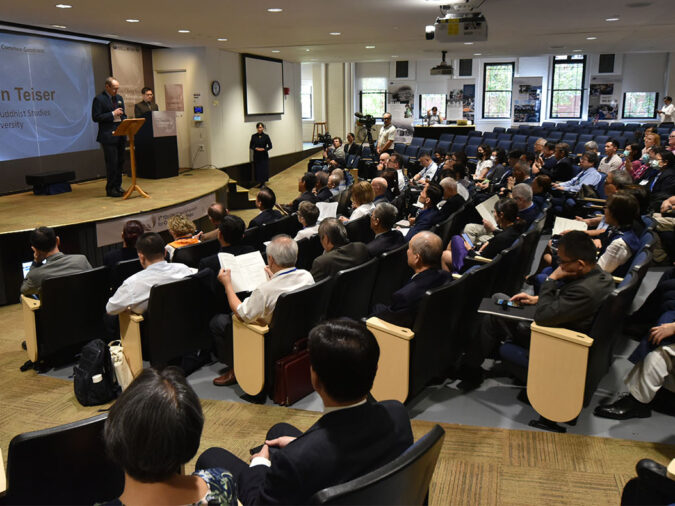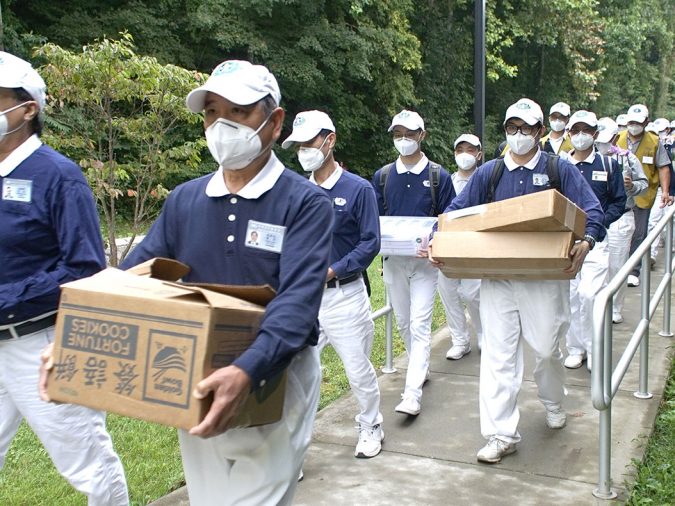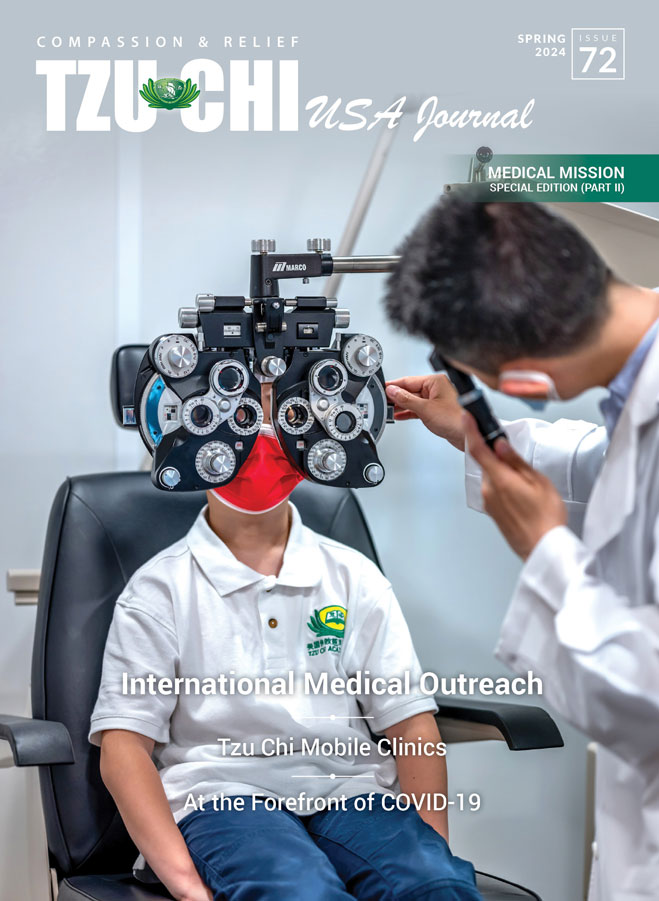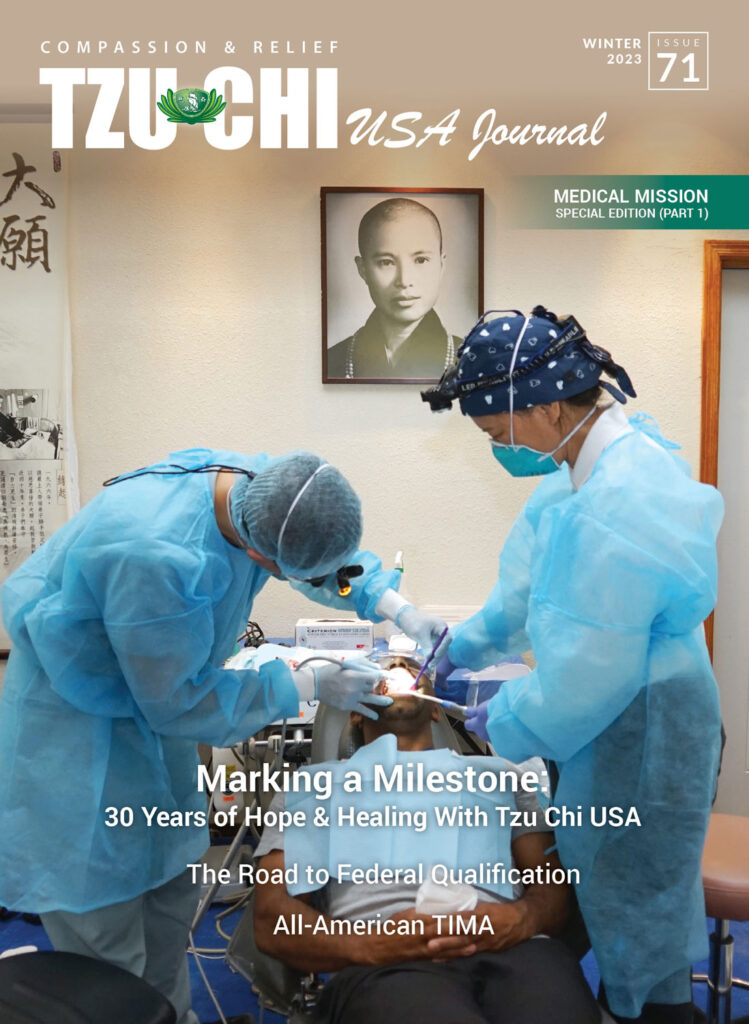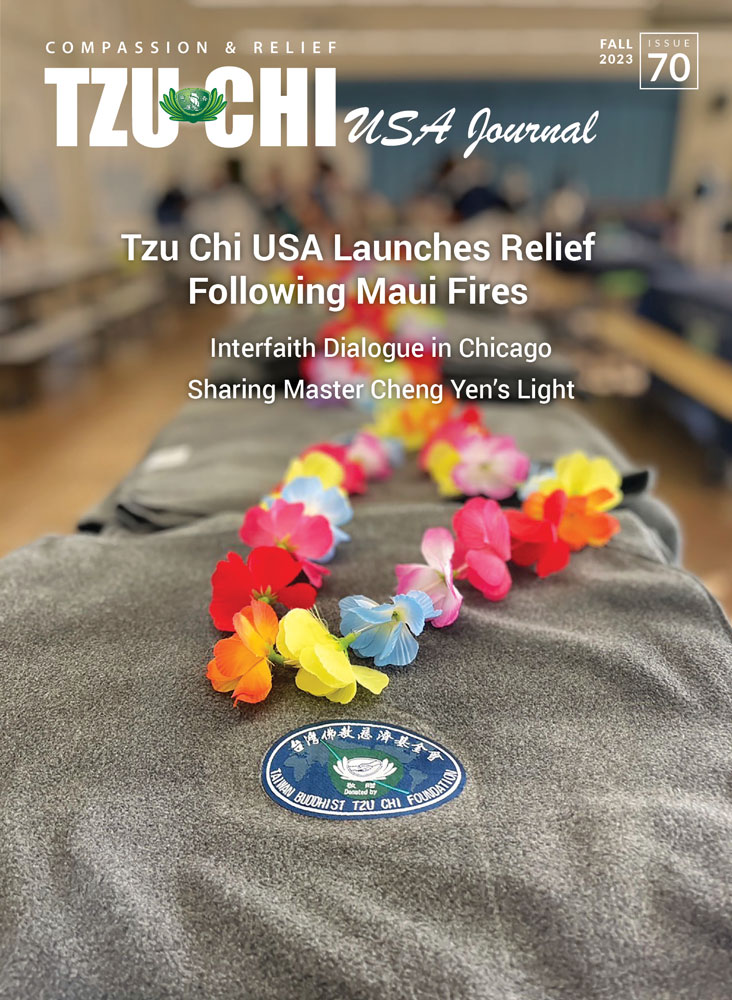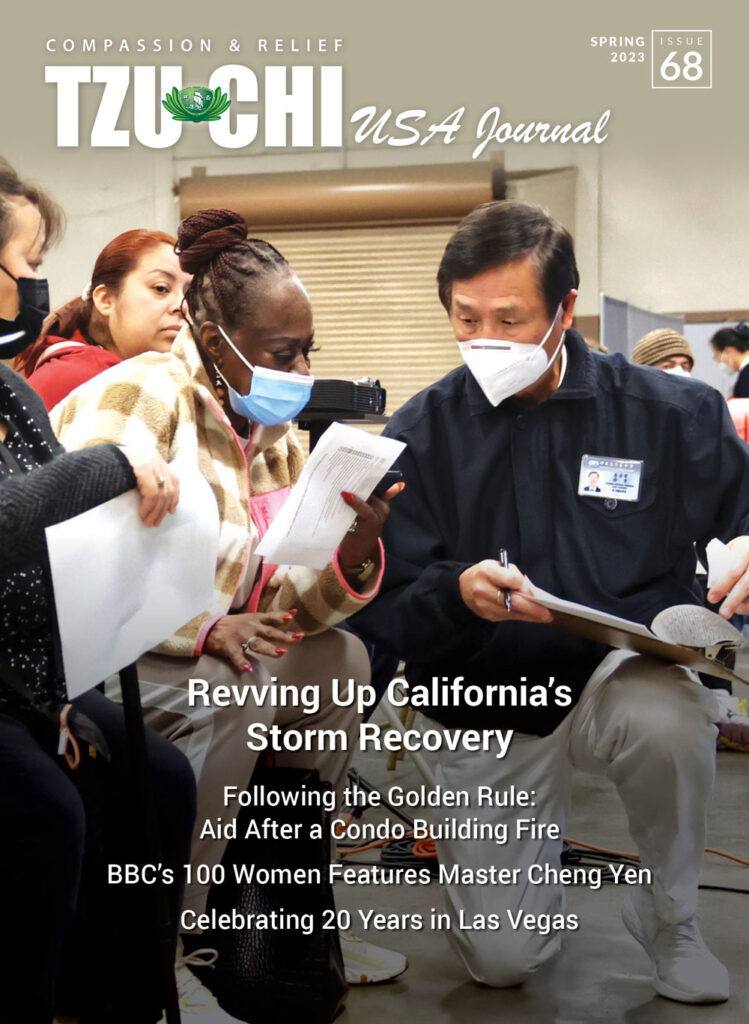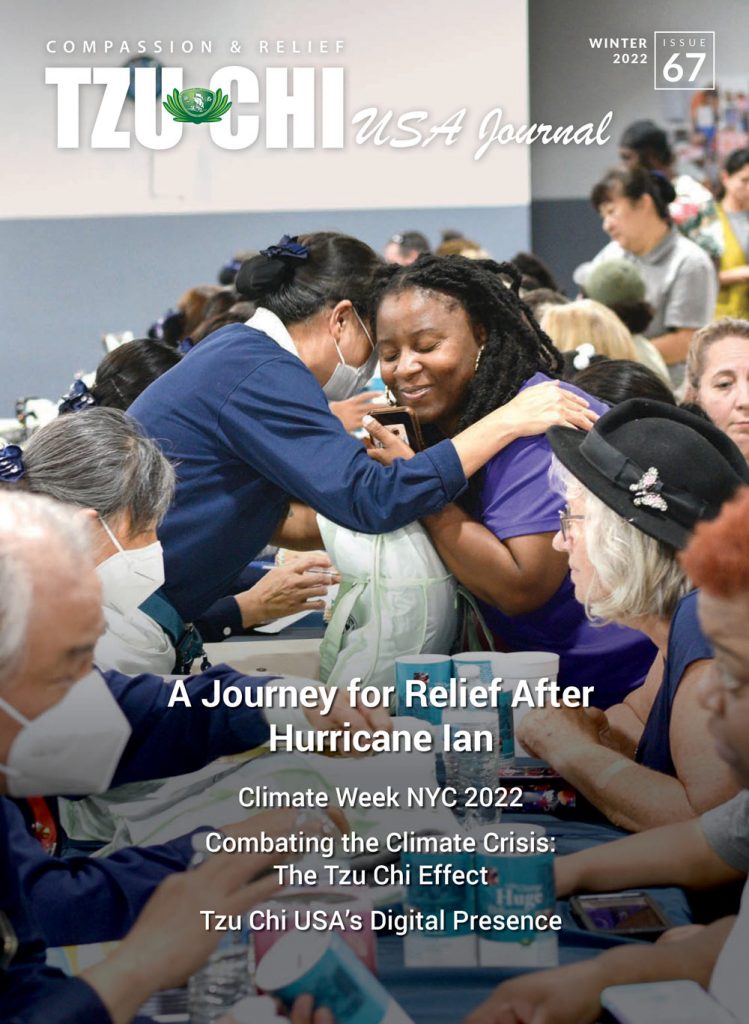Seventeen women from severely impoverished families join the Tailoring Vocational Training Program launched by Tzu Chi Haiti on May 14, 2021. Photo/Keziah Jean
By Johnson Chang, James Chen, Grace Wong, Ida Eva Zielinska
Translated by Diana Chang
Published #63 | Winter 2021 Issue
SHARE
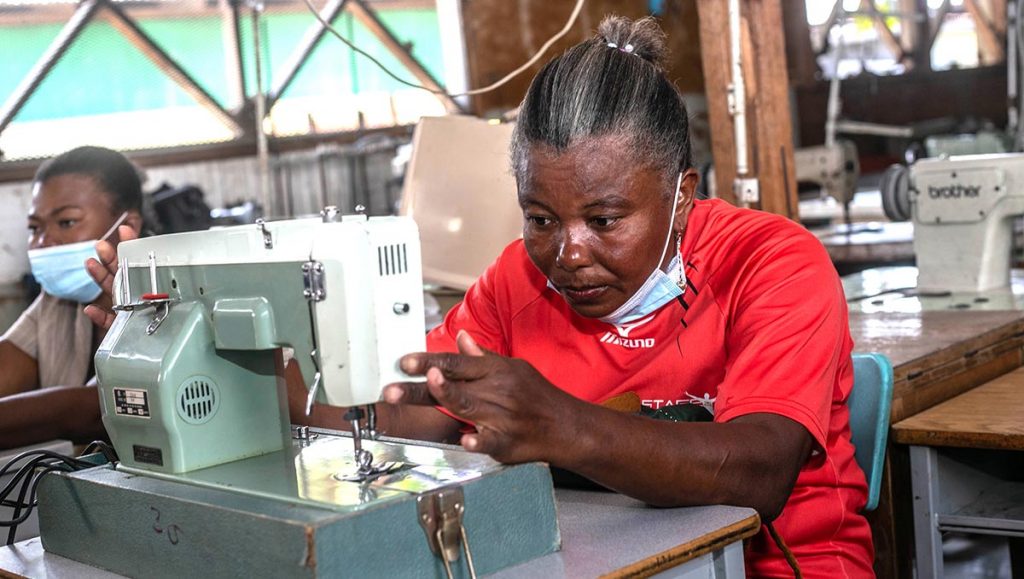
Decide on a goal, invest willingly and joyfully, and you’ll grow,” was the message Veronique Supplice wanted to convey to her tailoring students. “If you don’t like sewing, then it’s useless. It’s just a waste of time. You can never make clothes well. But if you’re interested, you’ll make beautiful clothes within a month or two,” she said, sharing her tips for succeeding in the field.
Veronique was there to teach 17 single mothers, the first participants in a Tzu Chi Haiti work-for-relief initiative. The Tailoring Vocational Training Program, launched in May 2021, aims to benefit underprivileged families in La Saline, an impoverished Port-au-Prince neighborhood. Father Zucchi Ange Olibrice, a Tzu Chi volunteer as well as Executive Director of Oeuvre des Petites Écoles de Père Bohnen (OPEPB), a Salésians de Don Bosco school in Haiti, and three other volunteers are in charge of the ten-month program, offered free of charge and with a living allowance.
The Tailoring Vocational Training Program’s opening project, “Making Cloth Masks as Work-for-Relief,” was scheduled to start in early April. However, the organizers postponed it to mid-May due to public safety issues and fine-tuning of the plan. Now that the team had officially launched the Program, it could fulfill its goal of relieving suffering due to poverty, thus bringing hope and joy to struggling households.
These [program participants are] from highpoverty families [and] were waiting for this project to begin. Because it’s a great opportunity for them not only to learn sewing but also to earn a living.
Father Zucchi Ange Olibrice
Tzu Chi Volunteer
OPEPB Executive Director, Salésians de Don Bosco
Women in Haiti often reside in poor, low-quality housing. Some must live with their parents to make ends meet. Most have an unstable income and engage in low-paying jobs which don’t require professional skills or high mobility. The life challenges for single mothers, many of whom became pregnant as adolescents, are especially pronounced. Some are survivors of physical or sexual abuse due to gender- based violence.
For many reasons, participating in the Tailoring Vocational Training Program was a dream come true for each of the 17 single mothers. And, on the first day of class, all the sewing and tailoring instructors truly showed their dedication and patience towards their students, taking a turn to teach.
Molila Pierre demonstrated how to use the sewing machine step by step, sewing one stitch at a time until the students got the rhythm. “I’m very happy to teach students of all ages. It’s an honor; no matter who it is,” she explained. Veronique Supplice shared that, “We’ll work hard to teach the students some simple tasks, and some challenging ones to prove their sewing technique.”
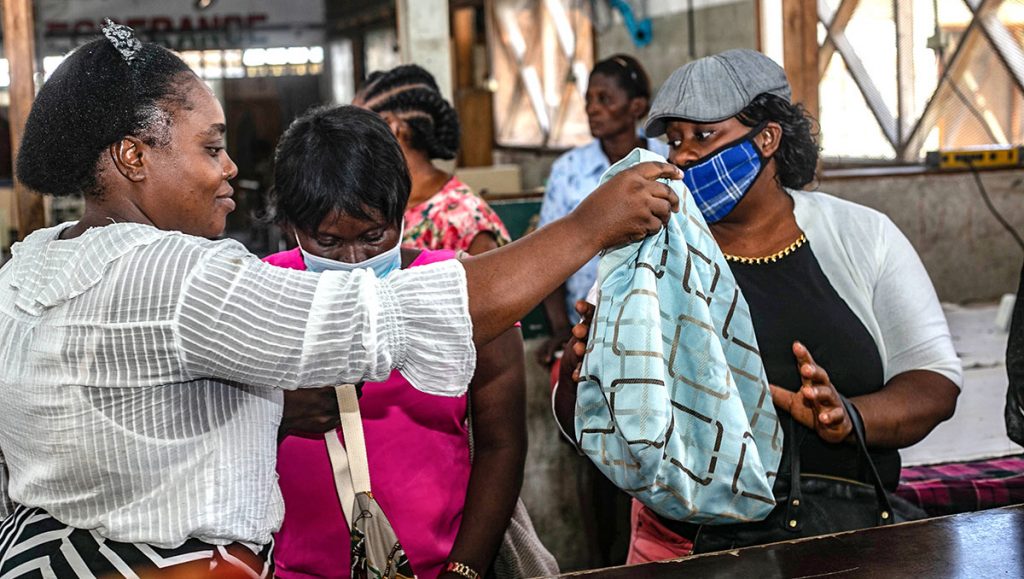
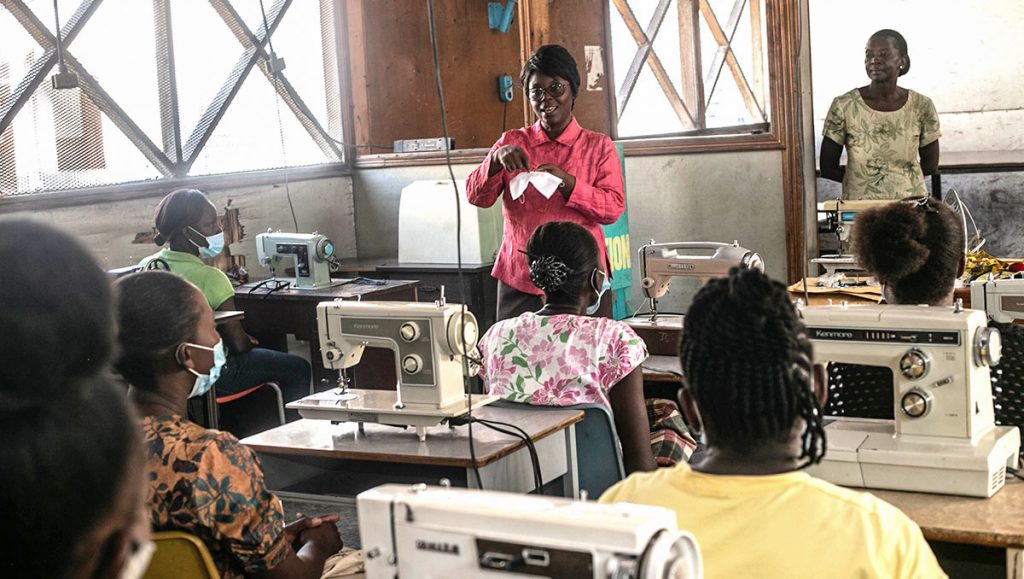
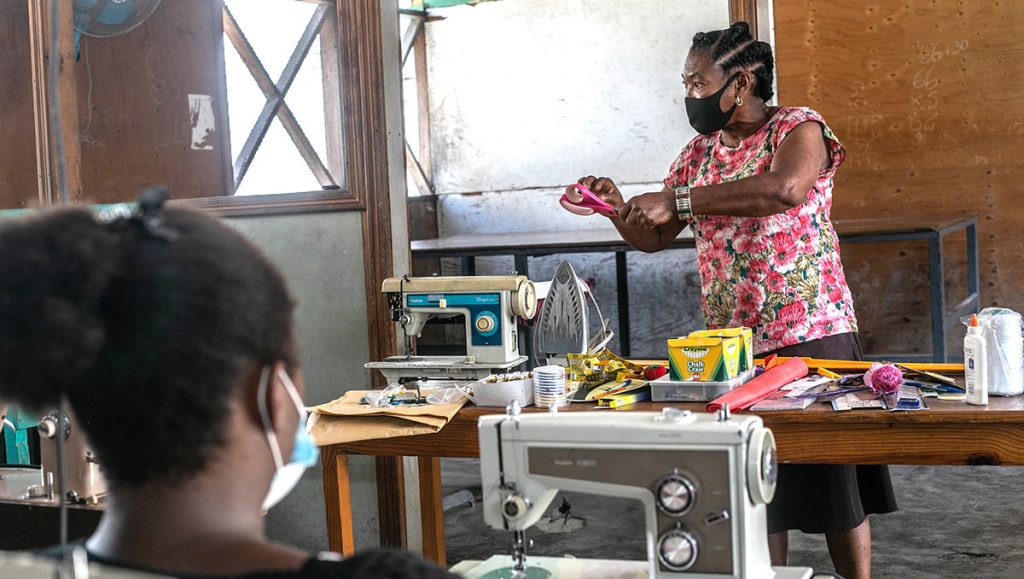
In turn, Adcline Domercant highlighted proper concentration, “When you sew, you talk less and stay focused on your work.” She expressed how much she wants women and girls in Haiti to stop waiting for good things to happen. As the sewing machines and colored spools of thread began to rotate, the single mothers had also spun into action. They bravely took the first step, thread by thread, seam by seam, starting to stitch and sew a better future for themselves and their children.
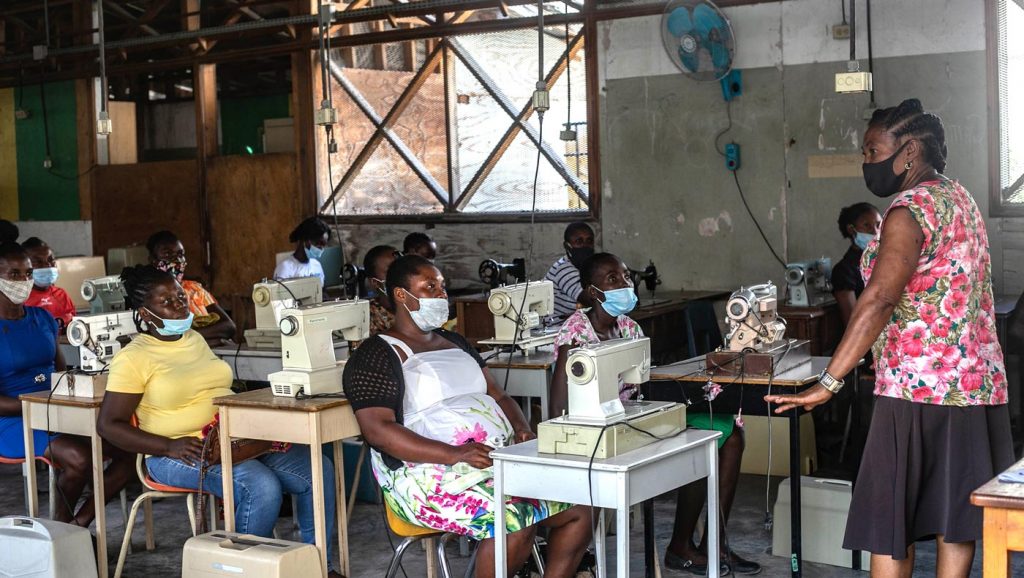
One of the trainees, Esperance Aliancent, is pregnant and expecting her baby soon. The mother-to-be is attentive and already planning ahead for herself and her family, taking full advantage of this opportunity despite the discomforts associated with pregnancy.
Even if I’m pregnant now, I can’t stop learning. I can’t wait until my child is born; otherwise, someone else will take my place. Even if I feel uncomfortable, I’m still studying happily.
Esperance Aliancent
Tailoring Vocational Training Program Participant
A Milestone to Celebrate
Four months later and halfway through the program, on September 27, the 17 participants exhibited their sewing work. They had learned to make skirts, masks, and uniforms during that time, modeling what they had made during the celebratory presentation.
Father Zucchi was thrilled at how far all the students had come in terms of the skills acquired.
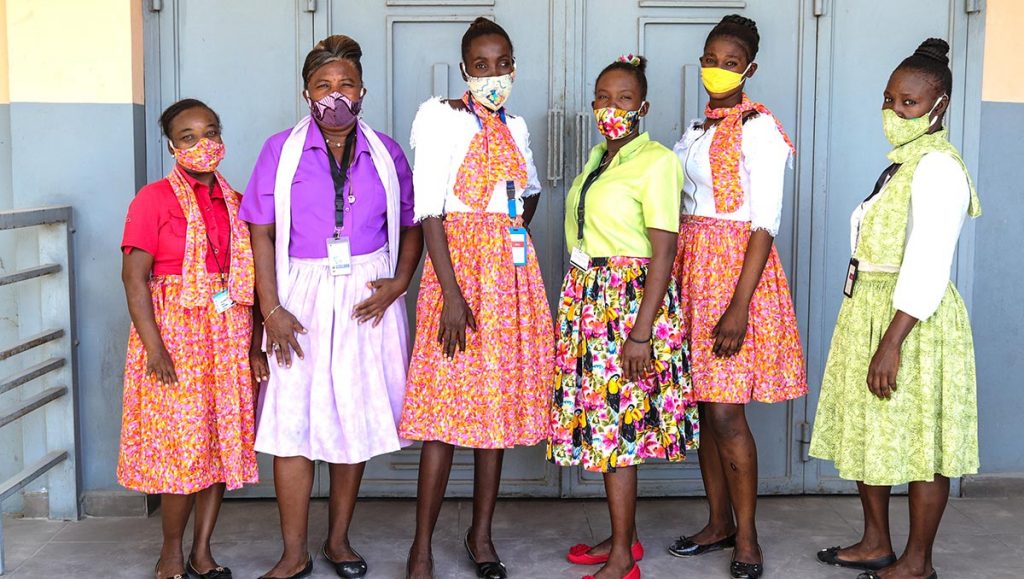
It is with a sense of joy and pride that we’re closing today the first stage of the cutting and tailoring work for the mothers from La Saline, a very poor neighborhood. Before, they didn’t know how to use the pedal, they didn’t know how to operate the electric sewing machine. Now, they’ve mastered the use of a sewing machine. Through this profession, they’ll be able to regain their dignity and pride and feel integrated into the community, into society, and become autonomous.
Father Zucchi Ange Olibrice
Tzu Chi Volunteer
OPEPB Executive Director, Salésians de Don Bosco
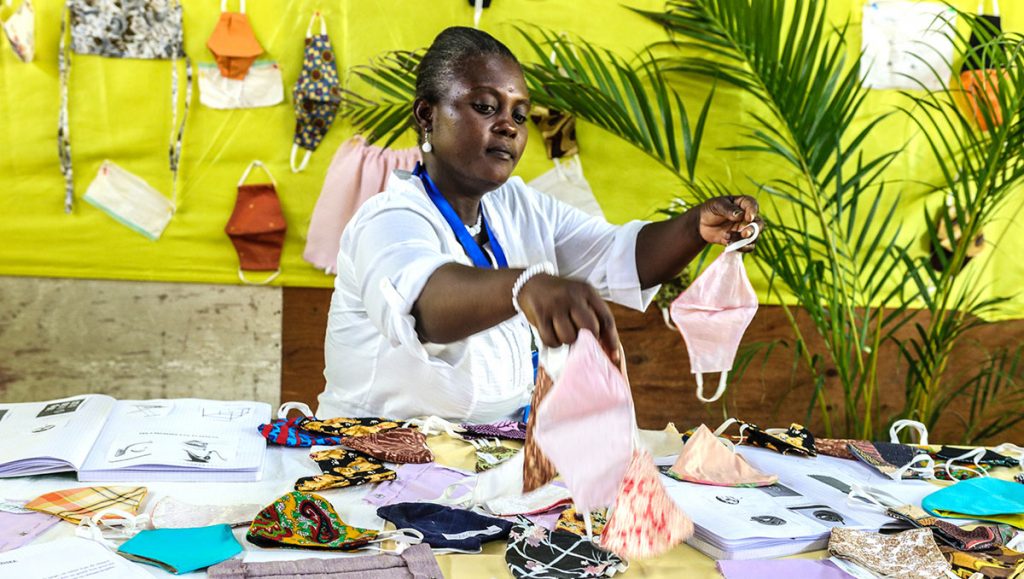
The teachers were equally excited about their students’ progress. Not only can they earn a better living through these skills, but they can also clothe their families and friends.
When they arrived, they had no skills in this area; they didn’t know how to hold a needle or make a garment. About four months later, they manage to make these beautiful skirts of different models that they wear. They also make scarves, masks that they use. The goal is for them to be able to make [clothes] that they and their family members, friends, and others can wear. We’re really proud of them.
Jean Louis Molita
Sewing Instructor
As for the students, all 17 women were over the moon, hardly believing how far they had come in just a few months, and eager to learn more, as one of them enthusiastically expressed:
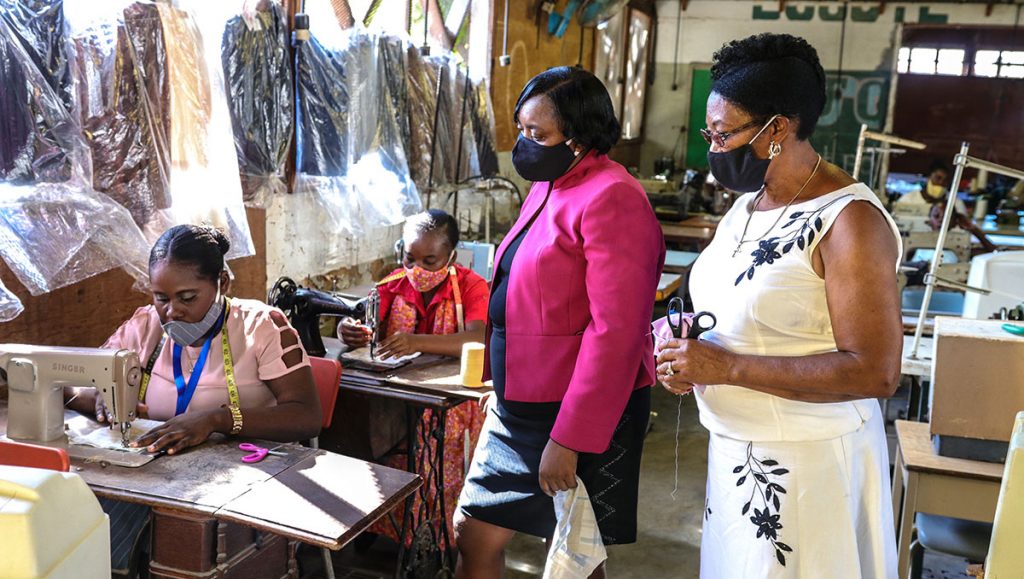
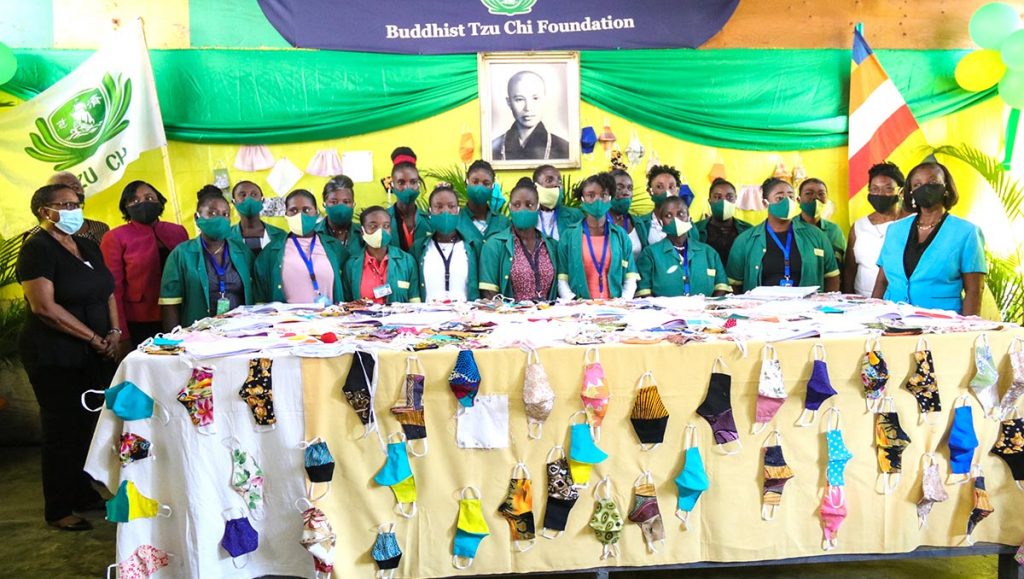
When I arrived, I knew nothing about sewing, not even the preliminaries. Now, thanks to God, I can make masks, skirts that need two measurements, then pleated skirts and basic skirts that need four measurements, and I’d like to learn how to make wedding clothes, suits, and men’s clothes because there are more men’s clothes. I want to say a big thank you to all the teachers who helped us. Today is a big day that I didn’t expect. I’m very proud of myself, and I thank everyone. I especially thank Master Cheng Yen and all those who support this project.
Marie Claude Fénélon
Tailoring Vocational Training Program Participant
In addition to learning various tailoring skills in ten months, the training program also incorporates Dharma Master Cheng Yen’s Jing Si Aphorism teachings within the courses. The wisdom and ethical principles in these succinct teachings will support students on their professional path, helping to guide their outlook and future choices and behaviors.
And, after completing the training, these 17 women will have gained the skills to work for any garment factory, paving the way towards a brighter future they might have never imagined before this opportunity.
SHARE:

